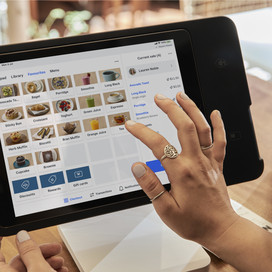Table of contents
Little Lagos has found a home and community in Sydney’s Newtown, which gave founder Adetokunboh “Ade” Adeniyi the confidence to try his hand at another city. His Brisbane venue didn’t quite go to plan, but after pulling out and being left with a pile of debt, Ade has his sights set on a different city: Melbourne.
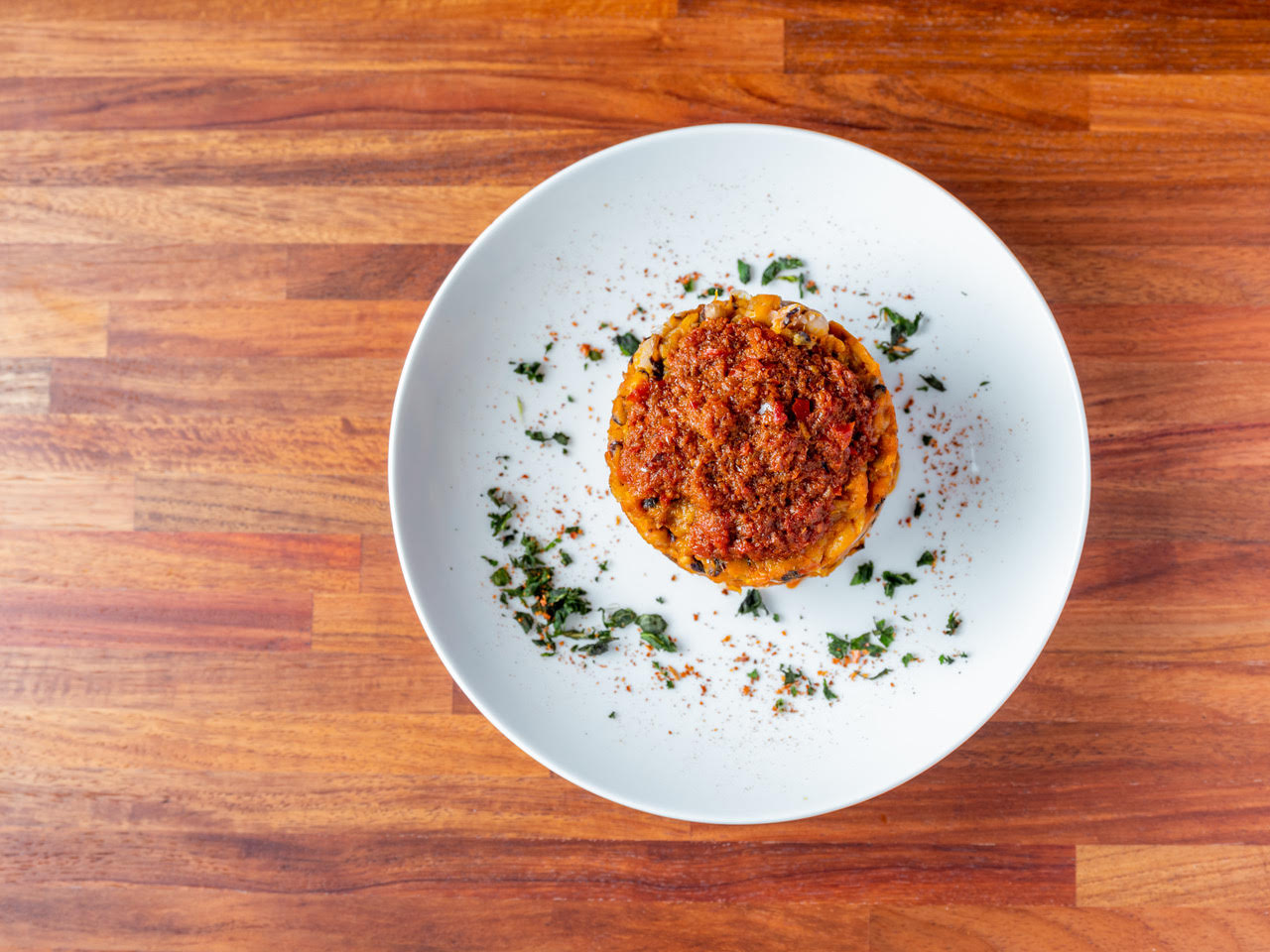
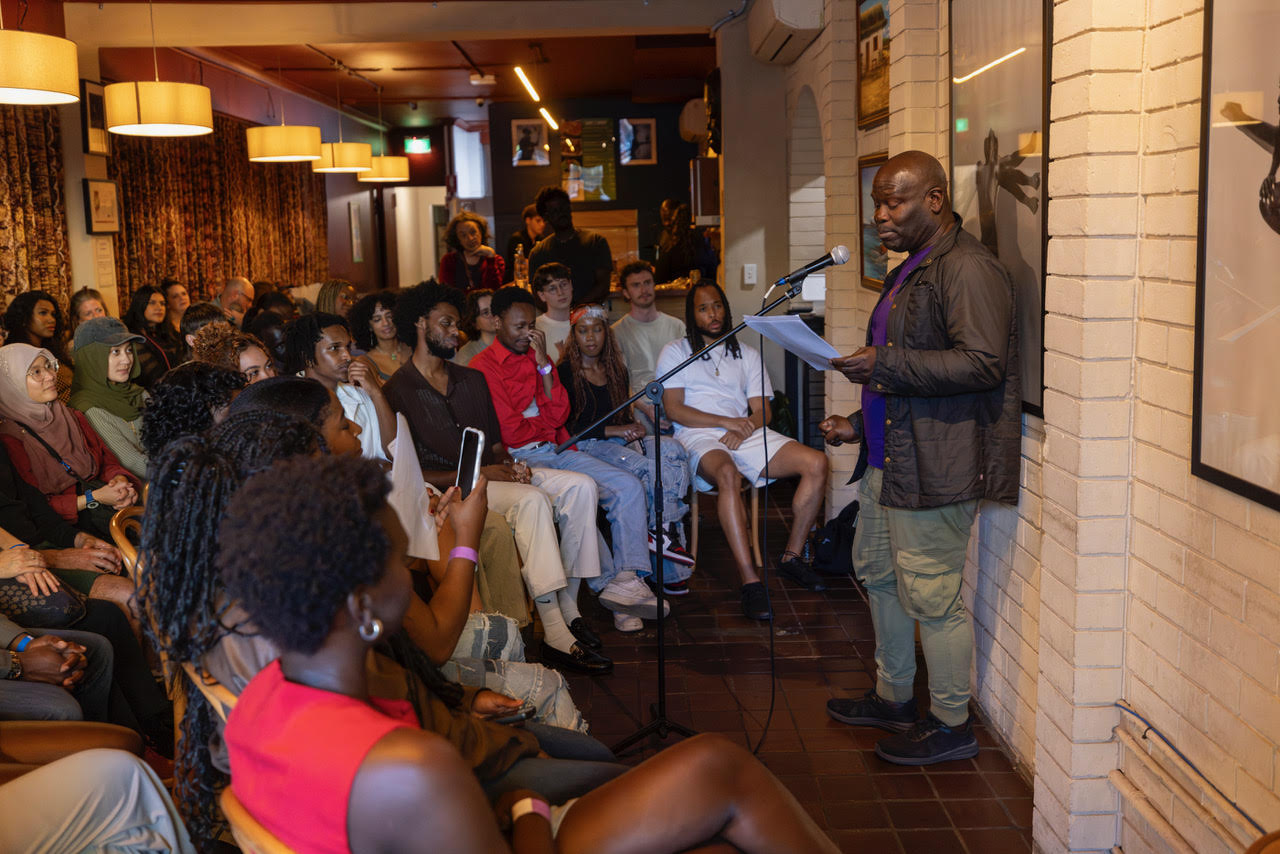
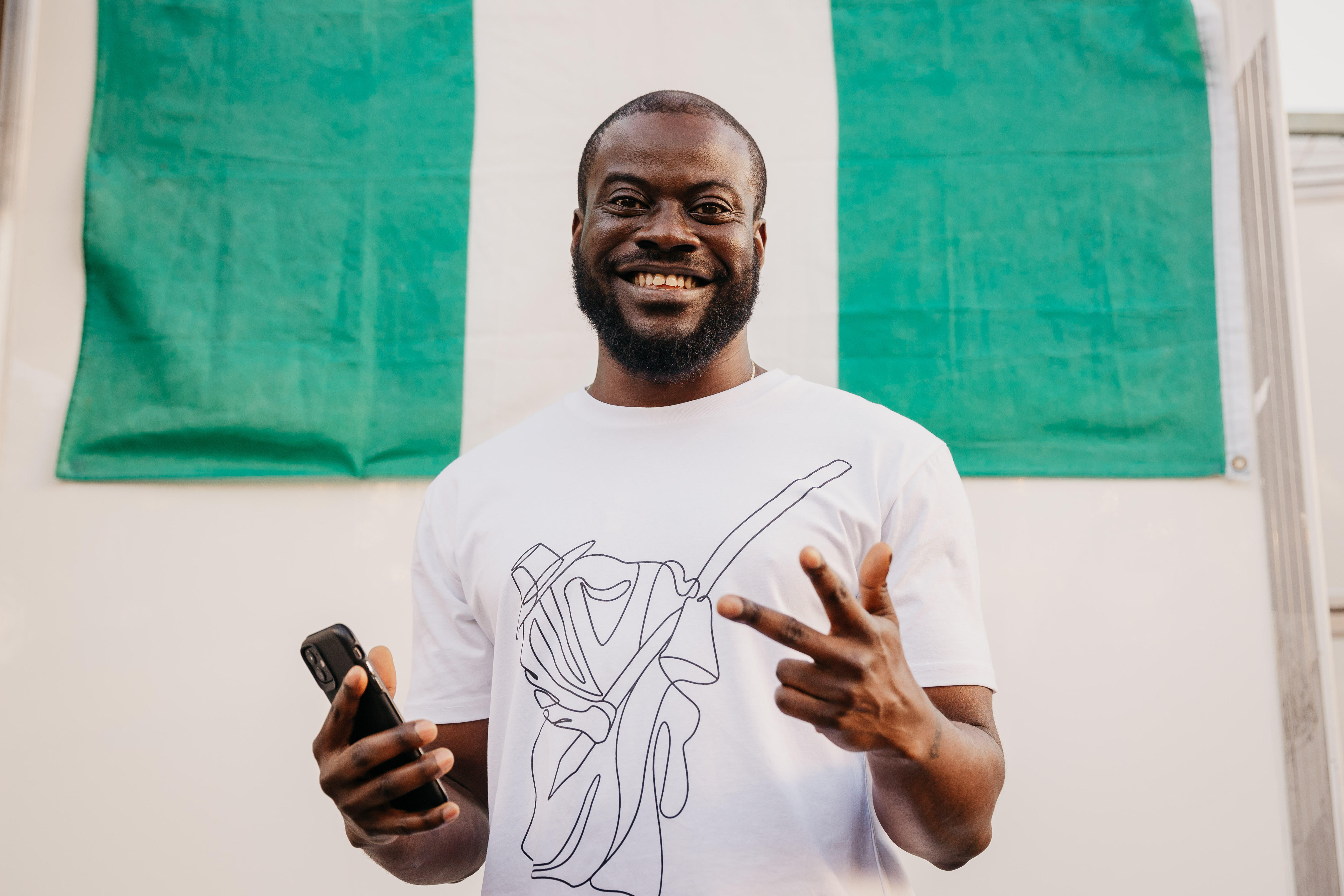
KOI Dessert Bar opened in Melbourne this year to a huge reception, and it’s Reynold Poernomo’s third venue. The pair talk through the challenges of being independent businesses, how to open in a new city successfully, and the barriers they’ve had to overcome along the way.
Little Lagos uses
KOI Dessert Bar uses
Subscribe to Coolroom Confessional
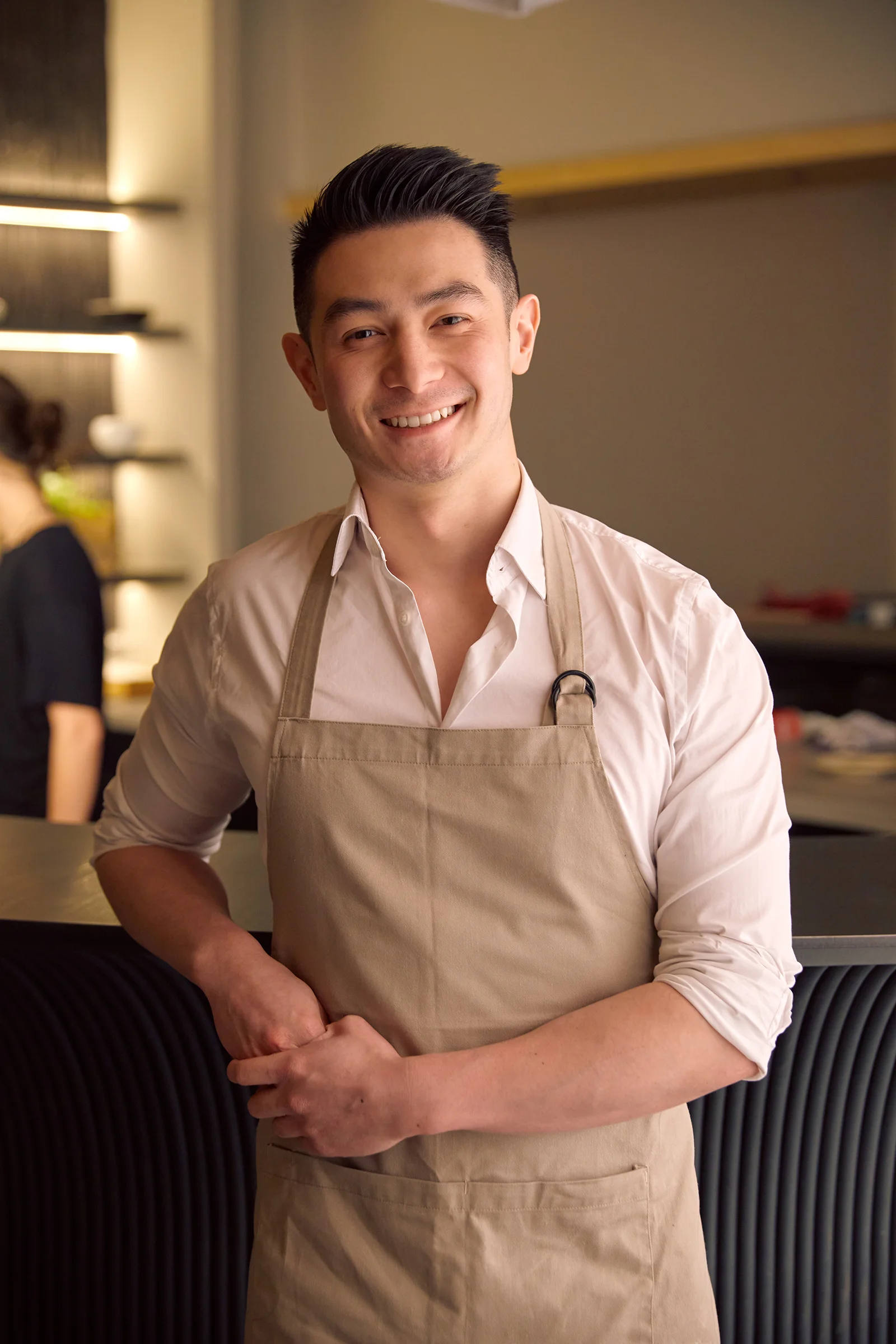
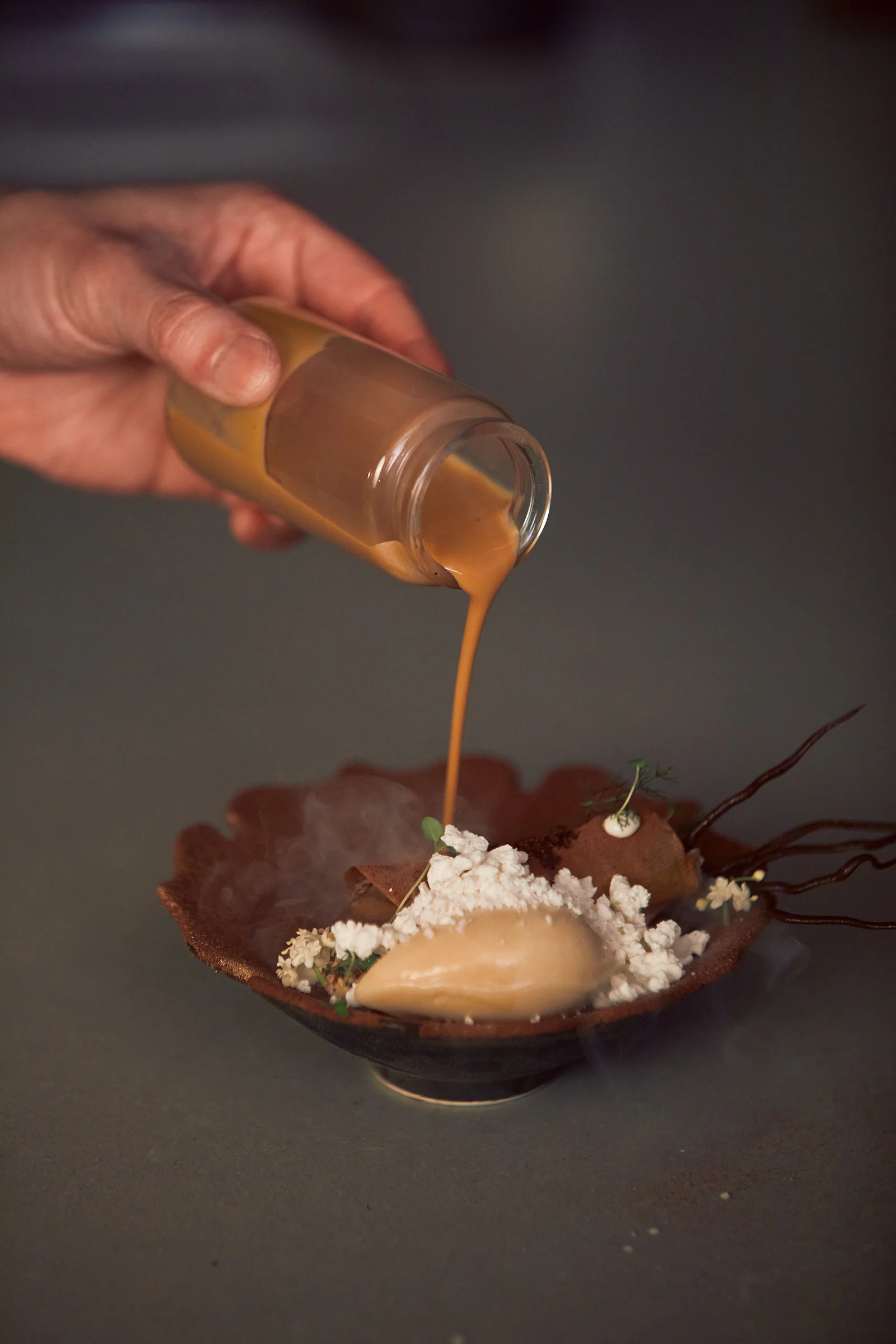
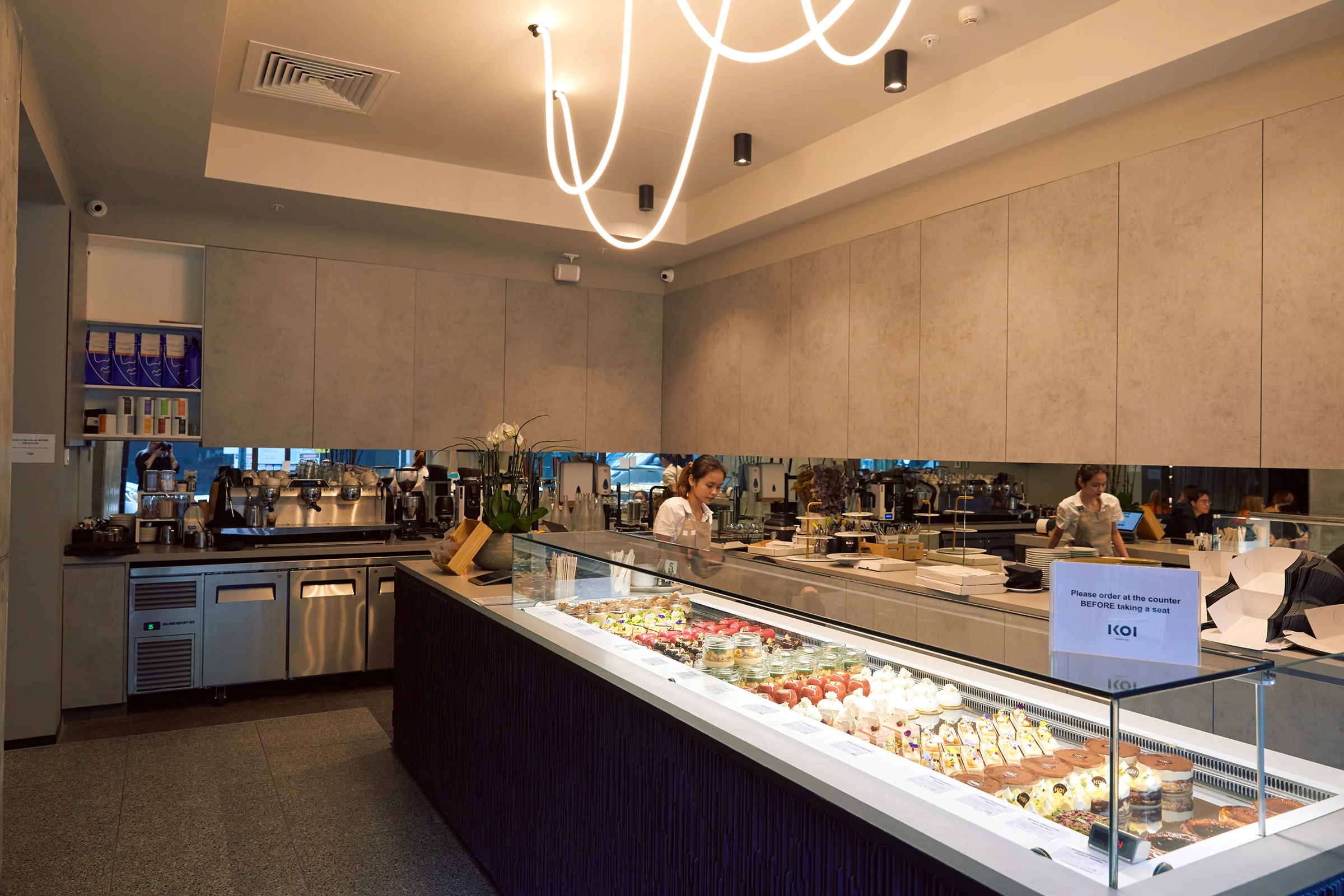
Episode Transcript
Melissa Leong:
We are proudly supported by American Express. Did you know that American Express card members can earn points when they tap on Square and that Square sellers pay one low rate to accept the card? If you’re a Square seller, you can let your customers know that your business supports American Express payments with complimentary signage and supplies at amexpop.com/square.
Intro:
Yeah, I remember talking to the team that night. I cried. I cried in front of them.
What I would not do, and write this down, put it in highlight, don’t do it.
We made so many mistakes that we’re always going to make.
Don’t let Lorenzo measure the store.
Messina should have been broke twice. It sent me to the wall twice, right?
You have to try it. You have to just roll the dice. I think you have to take the risk.
Melissa Leong:
This is Coolroom Confessional. In this series, we’re offering hospo business owners a place to confess their problems. With some expert help, we’re going to try and solve them. I’m Melissa Leong. I’ve been a writer, culinary critic and TV judge. Today, we’re taking a trip to Nigeria without ever leaving the country. Adetokunboh Adeniyi will be your guide. He owns Little Lagos, a dining venue and cultural hub in Sydney’s Inner West.
You’ve heard Nigerian music. You’ve seen Nigerian design, but have you tasted Nigerian food?
Adetokunboh Adeniyi:
We eat rice morning, afternoon, night. We can cook rice 10 different ways. So, Jollof rice is basically rice, which is cooked in a tomato-based sauce. Fufu is made out of yam. It can be made out of yams or plantains or cassava.
Melissa Leong:
When Adetokunboh Adeniyi arrived in Australia in 2016, he struggled to find a restaurant that would serve these meals or any African food at all.
Adetokunboh Adeniyi:
Well, the first thing I noticed was there was just none in Sydney at that time.
Melissa Leong:
He wanted to change that. So, you dreamed up a space to serve Nigerian cuisine and culture to the public.
Adetokunboh Adeniyi:
The biggest obstacle, which I realized real quick, was finding a venue. I thought it would be simple. I thought if I had my money and I walked up to a landlord and said, “Hey, I want to rent your property,” I thought they’d be like, “Yeah.”
Melissa Leong:
But finances weren’t the only hurdle. The feedback from landlords was brutal.
Adetokunboh Adeniyi:
Landlords were like, “Because we think you’re going to fail, well, we want six months deposit. We want a bank guarantee. We want a personal guarantee so that when your business fails, we can come after you.” I understand it if you’re looking at it from just business, but when you start saying, “Is your food smelly? Where is your stuff going to come from?” those kind of things are a bit like, yeah, they’re not nice to hear.
Melissa Leong:
But he didn’t give up finding a space for Little Lagos, a place to celebrate Nigerian culture and people of all backgrounds. Little Lagos has done what it’s set out to do, first, with a pop-up restaurant with music in Sydney’s Newtown.
Adetokunboh Adeniyi:
We wanted to see how the pop-up was, who is interested, who wants to try Nigerian food, who wants to listen to Nigerian music and experience the culture. And the answer was basically anyone who has never had that kind of experience before.
Melissa Leong:
Little Lagos is even listed on official tourism websites. It all adds up to mean by 2022, the business was well and truly ready to enter a new market.
Adetokunboh Adeniyi:
Brisbane was supposed to be everything that we planned. So, 400 people on a night in Friday in Sydney, Brisbane, if you get 150, you’re busy. So, we were already in trouble and we could just see the debt just piling on and piling on.
Melissa Leong:
Ade had a decision to make.
Adetokunboh Adeniyi:
We need to get out. We need to get out. So, it was a tough call to make. We had five-year lease. We’d just completed a year. A dream, this dream just got shattered.
Melissa Leong:
But that’s not the end of the dream for Little Lagos. Little Lagos founder Adetokunboh Adeniyi is here. Thank you so much for coming in. Now, you’re best known as Ade, right?
Adetokunboh Adeniyi:
Yeah, that’s correct. Thanks for having me.
Melissa Leong:
Thank you so much. Hopefully, I didn’t butcher your name too much.
Adetokunboh Adeniyi:
No, no, you did. I was listening actually. And you did, you got it right.
Melissa Leong:
Fantastic. I mean, look, I do try. But look, Ade, I’m going to dive straight into the hard stuff. Setting up a restaurant is hard. Setting up a restaurant while also encountering racism and prejudice, even harder. How did those early few years make you feel?
Adetokunboh Adeniyi:
I was a little bit unprepared for it. When you walk around Sydney, you actually, you notice it’s a very multicultural, diverse city. There’s everyone from all walks of life here. So, I didn’t think that I would face that much prejudice and racism per se. I thought everyone would be excited to want to see a West African venue pop up. I thought that would be people would be falling over themselves, especially landlords to be like, “Yes, I would want that in my building.”
But it was a bit of a shock initially, and I didn’t take it personal at first. I was like, maybe it’s a lack of understanding. So, I tried educating people, “This is Nigerian culture, Nigerian food, Nigerian music.” But I think the prejudice was already so strong. The Nigerian community is not massive. So, unfortunately, most people hadn’t come into any kind of contact with any Nigerians, and all they knew was stuff they read online or stuff they’d seen on the internet. So, they already formed an opinion.
Melissa Leong:
How did that make you feel?
Adetokunboh Adeniyi:
I was disappointed and I was like, “Oh, maybe this is not going to work.” And obviously, when you look around and you don’t see other Black venues, you start to think, “Maybe that’s why. Maybe that’s why one else has been able to go ahead with it.” But I like a challenge and I was just like, “Oh, okay, that’s one more thing I have to overcome.” So, that disappointment, I used this as a fuel to just drive myself to be like, “You know what? I’m actually going to get this done.”
Melissa Leong:
Yeah, I think when you compare experiences, especially when it comes to things like racism, taking that as an invitation to overcome, and to be resilient, and to really show people what you’re made of is a windfall of something as horrible as that. So, it’s funny when people say, “Oh, Australia isn’t a racist place.” My name was brought up in Parliament a couple of years ago to say, “Hey, look, there’s an Asian woman hosting MasterChef. We are not racist anymore.” And I went, “Yep, that fixes racism, doesn’t it?”
Now, can we talk about what you were trying to do in Brisbane and what went wrong?
Adetokunboh Adeniyi:
Everything that could go wrong went wrong in Brisbane. I call Brisbane the classic example of “Do not try this ever.”
Melissa Leong:
We’re about to enter a cautionary tale. So, set us up, set us up. You had Little Lagos in Sydney. You decided to expand into Brisbane as a market. What happened next?
Adetokunboh Adeniyi:
The first sign of trouble was the attitude of the workers over there. Everyone was just super laid-back. We couldn’t get anyone to come to work. We would literally be like, “We’ve got money to pay you to come and install something.” And they’d be like, “Yeah, no, mate.” I was just like, “What is going on? Is everyone here multimillionaires and they don’t need money?” So, it’s very laid-back. I can’t hold that against them. It’s a different city.
Sydney, we’re all about “let’s go.” Everyone’s busy. Everyone is on the hustle. There, everyone’s just a bit calm, a bit chill. They used to show up two hours late to anywhere and we’ll call them and they’ll be like, “Yeah, we’re coming after lunch.” That was the first sign of trouble. The second sign of trouble was we didn’t have a strong hospitality network in Brisbane. This is a huge lesson for me. In Sydney, I had friends, I had people. So, everyone that came to work on the Sydney venue came through, someone was recommended.
In Brisbane, we had to go on Google and find people and call them in. So, that trust wasn’t there, and we started to struggle big time. We finally opened. And the numbers are in there, first of all. When you start looking at, okay, how many people actually live here? How many people are in this city and where do they go and what do they do? I think that’s where we got it wrong. We looked at Brisbane like, yes, this is Australia’s third-largest city and it’s going to be pop-in. They’re going to want this because it’s unique. It’s the only one in the entire city. And then they were just like, “No, we’re good. We’re not really… We didn’t ask for this.
Melissa Leong:
We don’t-
Adetokunboh Adeniyi:
Take it back where you came from.”
Melissa Leong:
So, Little Lagos’ expansion into Queensland didn’t pan out. The team discovered what works in Sydney didn’t go so well in another city. Broadsheet’s Australia editor Nick Connellan says this is a mistake a lot of businesses make.
Nick Connellan:
For little Lagos, having gone to Brisbane is such a great example of tailoring your approach to a local market or even realizing that that particular market might not be receptive to you in any form yet. Some places are more open-minded than others. Or some places, they might just know more about that particular cuisine and be more well-versed with it because there’s more of it in the market. It’s pretty hard sometimes being the first one, being the leader.
Melissa Leong:
At a hindsight isn’t always a fair way to assess decisions that we’ve made. But looking back at what happened with the Brisbane failure, is there anything you would’ve done differently or would you just not have done it at all?
Adetokunboh Adeniyi:
I would’ve. I would’ve gone back to my original plan, which is a pop-up. To be fair, I was also be overconfident. I think the success of Sydney was such a driving factor into, “Yeah, let’s go into the next city.” But I had a pop-up in Sydney for almost three years. So, I build it literally from ground up, from market to food truck. Did a pop-up in a bar for a whole year. So, really built that following before actually opening the venue. Hindsight, I would’ve done the same thing in Brisbane. I would’ve gone in probably with a food truck or a food trailer. Do that for about a year, do a pop-up for another year or two before opening the venue, and definitely a much more smaller venue.
Melissa Leong:
Yeah, I guess in that way, looking at it from a hindsight perspective, it would give you an opportunity to test the market.
Adetokunboh Adeniyi:
Absolutely.
Melissa Leong:
Adjust the offering, build a network of people within hospitality and the ancillary parts of hospitality as well. So, when it comes to bricks and mortar, you’d have a bit more of that community that you spoke of, to be able to reach for and say, “Hey, I need a hospo electrician. I need someone who understands three-phase.
Adetokunboh Adeniyi:
Exactly.
Melissa Leong:
Or whatever it is.
Adetokunboh Adeniyi:
Exactly, exactly.
Melissa Leong:
Cool. Look, you’re very generous to share your story with us. It sounds like you’ve learned a lot in the experiences of opening and closing. Now, you still have some debt left over from Brisbane. How is that impacting your plans to move forward in hospitality?
Adetokunboh Adeniyi:
It’s a bit harder just because everything has slowed down. Everyone in hospitality will tell you that anyway. So, Sydney had the capacity to carry Brisbane along for a while, but even right now, Sydney itself is just trying to stay alive. So, that has definitely put a hold on all our plans. We did go into Melbourne with our pop-ups. We’re still doing pop-ups in Melbourne, but we’ve just basically put things on hold in terms of expansion, or our merchandising has stopped as well for now. I think we’re now in survival mode. We need to see through the end of 2025.
Melissa Leong:
Yeah, I think that that’s a really astute way to go about it, is just to ice things down a little bit and just wait for the conditions at play to change a little bit. Now, nodding along with me is someone that I’d really like to introduce you to, Reynold Poernomo from KOI Dessert Bar who founded his business in 2016 with his mum and brothers. KOI was born in Sydney, has now grown into Melbourne, has lots of plans for expansion. He is an absolute superstar and someone that I know from the MasterChef universe. Welcome, Reynold.
Reynold Poernomo:
Thank you. Thanks for having me. And wow, that’s a heavy start, wasn’t it?
Adetokunboh Adeniyi:
Yeah.
Melissa Leong:
Look, just dive straight in. You know me, I’m not great with the small talk way, but I saw you nodding along and really a lot of what Ade was saying already resonated with you. Is there anything that you wanted to start with there?
Reynold Poernomo:
Maybe from the top, let’s start with, I guess, it’s people of color who we are. So, when it comes to racism in Australia, I think I completely understand with the hospitality industry, and there’s a lot of different sectors that has lingered on my mind a lot in between cities from Sydney and Melbourne. It’s a really tough one to change the mindset of the culture of mass. Yeah. So, it’s one of those things where, I don’t know where I heard this from, but I’m pretty sure it’s a quote from someone very wise and who once said, “Just be where you are celebrated.” Because that’s how I feel now that where I’m gravitating towards in Indonesia, I felt more received. It feels like in this industry, you don’t have an investor, I’m guessing?
Adetokunboh Adeniyi:
No.
Reynold Poernomo:
You don’t have a business partner or part of a group. We don’t have deep pockets. So, when it comes to businesses that’s run by my family or you yourself, it feels like we have to work 200% harder to stand out. But to build that community, once you build it, it’s good. But let’s say, for example, this may sound a little bit… It’s like my little conspiracy theory.
Melissa Leong:
Go on, let’s put the tinfoil hats on.
Adetokunboh Adeniyi:
We love conspiracy theories.
Reynold Poernomo:
It’s just my observation for the past few years and wow, it’s almost been like nine years for KOI. I’ve always tried with the business to show up. It’s been me as the face of it as well. It’s just a family business. But then I looked at other groups, big giant groups, you can think of it, three halves, the two halves, the one halves, et cetera, that have the Asian restaurants or the exotic kind of restaurants that are run by people of color chefs. They’re fully booked and they’re consistently busy and on trend always in the eyes of media. But then when I see those that are starting out on their own, it feels a lot harder and more difficult to stand out and to build that community, to be consistent. It’s really tough to stay afloat.
Melissa Leong:
It’s an interesting concept and I don’t necessarily think you’re wrong with that. It’s almost like there’s the need for an established brand name to say, “We sanction this ethnic food. Therefore, you should come and eat it.” Whereas when you stand up yourself and say, “Hey, this is the food of my culture. I want to bring it to you.” people regard you with maybe a little bit of suspicion because you’re not vouched for. Is that the feeling?
Reynold Poernomo:
Yeah, that makes sense. Yeah.
Adetokunboh Adeniyi:
Yeah.
Reynold Poernomo:
When I get too taken away into that rabbit hole, it’s like, “You know what? I think what’s really important, regardless if it’s locals or a lot of tourist customers, I’m just going to keep building my community. And what is it that I can do to provide better service, better food, take on all the feedback, and also build a good culture within the workplace industry as well?”
Melissa Leong:
This podcast is thanks to Square. Hospitality has enough on their plate. Square builds business tools that help hospo businesses like yours run smoothly. It’s more than just payments. From table layouts to a digital ticket system for your kitchen, it’s all integrated and it all talks to each other because service still matters. Find out more at square.com/my/service.
Comparing Ade and your businesses, there’s a lot of commonality in terms of what you do on the plate tells a story and it conveys something much more than just delicious food, right?
Adetokunboh Adeniyi:
Absolutely.
Reynold Poernomo:
Oh, for sure.
Adetokunboh Adeniyi:
There’s a massive similarity between an African and Asian culture, apart from the fact that our mothers will boss properly when we mess up or throw their slippers at us.
Melissa Leong:
That’s a whole other conversation about trauma.
Adetokunboh Adeniyi:
You know what I mean? That obsession with rice as well. The family tradition that you find in Asian communities, it’s so similar to African community. We’re so respectful, uncle and auntie and grandma and mother. We don’t eat alone. There’s always at least four or six people around the table, and the biggest love we had was from Asian communities when Little Lagos opened.
When you start talking to people over food, it’s the best way to get to know somebody. It just breaks all barriers. It’s the perfect icebreaker. Someone’s having your meal, they’re happy, they love it, they’re ready to answer any question that you ask them. So, we felt that love immediately. And when we went viral, I still remember it was largely due to our friends from the Asian community that would come in, film it, put it online on TikTok and everything, and it was just like we did not spend a single dime on advertising or marketing because we couldn’t afford it.
Reynold Poernomo:
Is it just yourself? So, you don’t have an investor, business partner or anything like that?
Adetokunboh Adeniyi:
No. I’ll give you a backstory. When I moved here, I moved here from Dubai. Everyone knows it’s a tax-free country. So, I was working there, saved a lot of money and came into Australia. So, I just invested that money. I did reach out to people to invest. Everyone was more like, “Oh, buy a house, buy a property, buy a house.”
Reynold Poernomo:
Especially in hospitality.
Adetokunboh Adeniyi:
That’s right because if anything goes wrong, I can sleep in my house. You know what I mean? I’m not going to be out in the street. So, two years after Little Lagos was up and running, we did get a few interest. But just to touch on what you said earlier about the big established hospitality groups, they didn’t really know how to approach it. They thought it was cool. They saw all the events, all the parties, the food, and they were like, “Yeah, this looks good.” But no one thought Australia is ready for an African or a Caribbean franchise.
The more we achieve, the more value the brand would have, and the easier it might be for a potential investor to come in and be like, “Okay, you’ve been here five years. Through COVID, through cost-of-living crisis, you’re still here. Maybe there is something here after all.”
Melissa Leong:
Partnerships is something that’s come up a lot in this series. Bringing in partners can be the best or worst decision you make for your business. Hannah Green from Etta Dining had a business divorce and learn a big lesson.
Hannah Green:
I can still pinpoint the exact moment that it happened. And I think when you have those moments, if I had just said, “No, I feel strongly about this. This is why,” it would’ve been a different outcome in those moments. I don’t like conflict, but you have to be comfortable getting uncomfortable, I think, to have a positive outcome.
Melissa Leong:
Little Lagos was established around the same time as KOI. So, Rey, how long after you opened KOI did you expand or think about expanding into another venue?
Reynold Poernomo:
Back then, there was a lot of ego-driven decisions and I can see my family as well, there’s a lot of pride, a lot of overstepping each other’s boundaries. So, when we moved on later on, it just ended up becoming myself, my mother and my brother in the business. And then we built a structure, slowly understanding how the business works better. And we started to meet new friends and new people that have an outside perspective of what we can do, more of a mass volume. “Hey, why don’t you just sell this in Coles? Hey, why don’t you just sell this in Woolies or whatever it is. Supermarket this.” Just mass, mass, mass.
Melissa Leong:
Thinking about commercial upshot.
Reynold Poernomo:
It’s very different. Everyone, like all these VC guys, or people always just think about volume. Yeah, it makes a lot of money, but you got to think about KOI is not one of those things where you could just make a big volume of it. It doesn’t work. It’s a lot of fine, little details that goes into it. So, we understood our business more than these outsiders, but we also took in their advice. We did pop-ups. They do really well. We can freeze our products, we can ship them down and can start to think about expansion from there.
So, we started to think about Melbourne pre-COVID. So, yeah, there was a lot of things that happened since and delay and delay. So, it’s only been about almost three months for us now. Got three venues. That’s more than enough, to be honest, for myself. It’s really hard to manage in between states and stuff like that. It really eats up your time. And the reason why I asked if you had any business partners and investors is because I’m fortunate enough with my brothers and my mother, as well having friends that we specialize in specific areas of the business. To be honest, I can’t handle numbers.
Adetokunboh Adeniyi:
Me too, me too.
Reynold Poernomo:
Man, I would suck. And to be honest, we all sucked. I’m not going to lie. We all sucked. It’s really tough in Australia. It’s such a slim margin already, and then with all these things of cost of living, wages, and everything just keeps going up, keep going up. Now, chocolate’s like two, three x the price.
Adetokunboh Adeniyi:
Yeah, price.
Reynold Poernomo:
It’s like what the… So, we have to try to adapt and learn ourselves. We learn as we go. We failed a lot. And people say, “Hey, you’ve made KOI Dessert Bar. It’s really cool. You’re a success.” And I feel this massive imposter syndrome. It’s like, “No, man, you don’t know what’s going on.”
Melissa Leong:
Imposter syndrome is something I’ve come across a lot. I sometimes have it myself. Sometimes, the most successful people like Rey don’t identify with their accolades because they’re so focused on the elements of the business that aren’t perfect. Award-winning hospo strategist and owner Michael Bascetta understands that all too well because he knows how hard running a venue in 2024 can be.
Michael Bascetta:
Yeah, some of the best people in the business are going out of business right now. So, it’s just like, it’s not that you failed; it’s just the market is shit. Your product is great, but wrong place, wrong time.
Reynold Poernomo:
So, coming from as a creative, I only just make food really, but seeing all these different other businesses that have grown to be very successful, what have they implemented into the business that can sustain it long term? So, I took on advice from a few of my friends and sought out my own financial advisor and then get advice from them. Realized we need a financial controller and all that stuff. These things that we can hand off to other people will cost more money, but it will help the business in the long run. It’s more of prevention than damage control. It’s better to avoid it. It is very difficult with family though because I’m the youngest; I get overruled. So, it’s like, “Huh.” I wish my brother was here so I can give him some shit.
Melissa Leong:
Ade, do you have any questions about that move interstate and that expansion of Rey’s business?
Adetokunboh Adeniyi:
Yeah, definitely. So, when you moved interstate, for example, did you guys do a pop-up as well or was it more like straight into a venue and just ready to trade?
Reynold Poernomo:
We did a pop-up. They had a hawker hall underneath an office building.
Adetokunboh Adeniyi:
Nice.
Reynold Poernomo:
And they asked us to do a pop-up there. They’re going to do a ghost kitchen. They rotate it.
Adetokunboh Adeniyi:
Nice.
Reynold Poernomo:
So, we went in there. We all felt it’d be good to test the market. If you have that opportunity, why not? And it worked. We shipped down our products from Sydney down to Melbourne. We did the finishing on site. Everything was consistent.
Adetokunboh Adeniyi:
Nice.
Reynold Poernomo:
It was very busy. But you have to realize as well that pop-ups are exclusive and that’s only going to be busy for that period. So, even that, I’m taking into account that, regardless the opening of Melbourne is very exciting, the first couple of months, lucky. First year-
Adetokunboh Adeniyi:
In a rush.
Reynold Poernomo:
… we’ll be very busy. Yeah, the hype. It’s the mid-game that’s most important. That’s going to be the determination of your business.
Melissa Leong:
Race on the money. You may see success when you launch a product or business to a new market or audience, but hype is a cycle and you have to account for how to maintain that audience beyond the first few months or year.
Reynold Poernomo:
It’s really important to keep that quality of service, keep that quality of consistency. And when it comes to expansion interstate, that is one of the hardest things that you can do. Because right now, my mum, my brother and I, we’re just constantly back and forth in between cities trying to make sure the team is the same in Sydney, but we can’t think it like that. It’s going to be a different people. It’s going to be a different culture, a different city. So, we have to adapt that business to what’s true to the city.
Melissa Leong:
We’ve just heard from Reynold on how hard it can be to operate multiple venues across multiple states. Award-winning restaurateur Joel Valvasori believes that there are easier ways to grow your business and boost the bottom line.
Joel Valvasori:
I’m not a big fan of the idea of restaurants opening up in multiple locations. You have to put a lot of trust in a lot of other people over multiple sites, et cetera, to do that. Nine times out of 10, the initial business that you have suffers as a result.
Melissa Leong:
Every market’s going to have its challenges and what you have is potentially a receptive audience, but also potentially a fickle audience who’s also very switched onto what’s new. And when you are no longer new, you really need to think about what you’re going to do then.
Now, Ade, you’ve been testing the Melbourne market. How has that experience been for you with your pop-up?
Adetokunboh Adeniyi:
I found Melbourne people just get dressed to come to the pop-up, and I’m like, “It’s just a pop-up. Why are you in your Sunday’s finest?” But they just always dress nice. I think it’s our all-winter fashion.
Melissa Leong:
It’s for you, Ade. It’s for you, to impress you.
Adetokunboh Adeniyi:
Yeah. So, the way we run the pop-up in Melbourne, every pop-up is a party. We do it on Sundays. It’s a day party. We have DJs. We have live music. Sometimes, we do a live podcast session at the pop-up. So, we’ve made it a little community thing that’s just… And food is served on the side, so almost like a cookout. But so far, the reception has been amazing.
And then we’ve branched out into the Afro-Caribbean side of our cuisine now. So, we’re bringing a Jamaican chef and then with Nigerian chef, and then we do a fusion. I think that’s quite new for Melbourne and that’s very interesting. So, I found people are really embracing that and they’re really loving it, especially when we tap into the music side, the live events, the creative side as well.
Melissa Leong:
Yeah, it’s a really interesting concept that you’re talking about. While the idea of pop-ups and food trucks are potentially a good way to test the market, like you mentioned, Rey, the idea of exclusivity, of a finite offering, means that the data is kind of skewed because you have this exclusivity thing hanging over, the idea of a pop-up. Is there a certain amount of information that you’ve been able to extract in terms of just perceiving the Melbourne market and what you may be getting yourself in for? Should you open a bricks and mortar venue down here?
Adetokunboh Adeniyi:
Absolutely. Price point was the biggest thing. We actually dropped our prices compared to Sydney by more than 25%.
Reynold Poernomo:
Whoa.
Melissa Leong:
Is that sustainable as an option for you?
Adetokunboh Adeniyi:
It kind of is. Rent is a bit cheaper. The rent we pay for the pop-ups is a bit cheaper. We’re actually able to source produce slightly cheaper as well. Our ingredients and spices all come from Nigeria, so that doesn’t change. That’s expensive wherever we go to because it’s all imported. We all get it from one or two people. What gives me excitement is because the way we want to run, if we eventually do Melbourne, is we want to make it an Afro-Caribbean thing. We don’t want to make it just a Nigerian thing anymore. We want to really expand our culture to cover the Caribbean and West Africa because they’re literally the same people, and we think that that could give us a bit of an edge.
Reynold Poernomo:
I think, overall, when it comes to expanding out into different cities is being able to adapt into that city and being its own identity almost. While still Little Lagos, but it’s Melbourne version. It’s not the same in Sydney and same with KOI. What we have in Melbourne is not exactly the same what we have in Sydney. I think it’s always good to-
Melissa Leong:
Tailor it.
Reynold Poernomo:
Yeah. I’ll be honest, the first day that we opened, I looked at our cakes, I’m just like, “Wow, this is really underwhelming.” Honestly. Because this is the exact same shit that I see in Sydney, and then what can we do to make it different?
Melissa Leong:
It didn’t feel special enough.
Reynold Poernomo:
Yeah, it didn’t feel special. I just felt like it’s just another kitchen that I have in Sydney.
Melissa Leong:
A-type personality over here.
Reynold Poernomo:
So, then we started to implement bespoke cakes, start to collaborate with other businesses locally.
Melissa Leong:
Rey’s describing the kind of burnout that often happens with high achievers who strive for perfection. Here’s Nat Paull, another award-winning pastry chef who shut her business at its height. Let’s find out why.
Nat Paull:
In some small businesses, they’re just not set up to have a lot of support around the person that’s controlling and spinning all those plates. I wanted to make that decision before I had the decision made for me, and that was really important. Whether that was financial or whether that was just emotional, just having the complete burnout, and the answer just came up. No, it’s time for you to ease up.
Melissa Leong:
Ade, something you do exceptionally well is bringing media into your business. How have you gone about building relationships with media and getting them to know what it is that you are up to on your terms?
Adetokunboh Adeniyi:
I have a very special relationship with the media because, just like Rey said earlier, I can’t compete with advertising dollars that the big hospitality groups have or the relationships that they’ve built over 20, 30 years. What I have is a story, and I can tell that story in all honesty and the media, credit to them, they like a good story. And that’s basically what we’ve been giving to them.
Melissa Leong:
With a bit of time and distance. Do you believe that the failed Brisbane expansion will pave the way for something else?
Adetokunboh Adeniyi:
Yeah, I think so. Now, that I’m listening to Rey as well, I’m excited about Melbourne. I think, yeah, we’re going to focus a bit more on Melbourne end of 2025. Try to have something brick and mortar, a new concept, still under the Little Lagos brand.
Reynold Poernomo:
I’ll say when it comes to Melbourne, yeah, join the crowd, go out there. And then when you bring in your concept, you have to understand what people want, and I think that’s the most exciting part about it. And to be part of the community and then give to the community.
Adetokunboh Adeniyi:
100%.
Reynold Poernomo:
Yeah.
Melissa Leong:
Yeah. Look, so much useful information exchange between the two of you today. From the bottom of my heart, I’m so grateful to have had you both on the podcast. Thank you so much, Ade and Rey.
Adetokunboh Adeniyi:
Thank you. Thank you so much.
Reynold Poernomo:
Really nice to meet you, Ade.
Adetokunboh Adeniyi:
Nice to meet you.
Reynold Poernomo:
I’ll see you a Little Lagos. Can’t wait.
Melissa Leong:
I will try and make it down next Sunday.
Adetokunboh Adeniyi:
Done. Done. Lovely.
Melissa Leong:
Yay. If you’d like to see some more examples of businesses overcoming these and other issues, head to Square’s publication, the bottom line at square.com/get/thebottomline.
Coming up next on Coolroom Confessional.
Janine Allis:
What do you want?
Mo Saad:
I would love to see Fricken going national.
Janine Allis:
So, you’d need to fire really fast and hire really slowly.
Melissa Leong:
We are proudly supported by American Express. Whether you’re baking bread at sunrise or serving drinks into the night, American Express has your back. As a Square seller. You pay one low rate, accept all major cards, including American Express, and you can order complimentary signage to attract more customers directly to your door at amexpop.com/square.
This podcast is thanks to Square. Hospitality has enough on their plate. Square builds business tools that help hospo businesses like yours run smoothly. It’s more than just payments. From table layouts to a digital ticket system for your kitchen, it’s all integrated and it all talks to each other because service still matters. Find out more at square.com/my/service.
![]()



